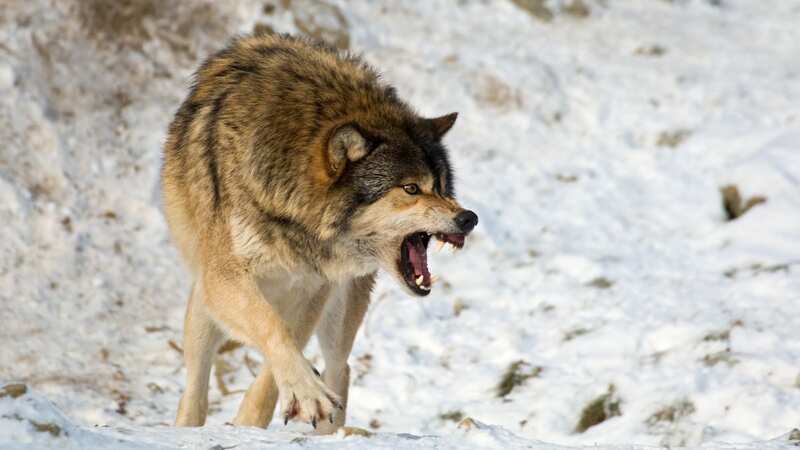

The packs of stray gray wolves living in Chernobyl appear to have developed mutations that increase their odds of surviving cancer, new research has shown.
Since the area was abandoned following the infamous nuclear disaster in 1986, canines have flourished in the exclusion zone and the population of wolves is reportedly seven times greater than surrounding areas in Ukraine.
The feral animals, which also include descendants of pet dogs abandoned during the evacuation, have been monitored by scientists for many years. It's believed the radiation has increased the animals' odds of surviving cancer, 35 years after the nuclear disaster.
 Chernobyl nuclear power plant a few weeks after the disaster in May 1986 (Getty Images)
Chernobyl nuclear power plant a few weeks after the disaster in May 1986 (Getty Images)Cara Love, an evolutionary biologist at Princeton University, has been studying the wolves for a decade and her research has found they have altered immune systems that are remarkably similar to cancer patients undergoing radiation treatments.
Love, who presented her work at a biology meeting in Seattle, Washington, last month, has noted how the "wolves of Chernobyl survive and thrive despite generations of exposure and the accumulation of radioactive particles in their bodies". The world's worst nuclear accident released cancer-causing radiation - but her research shows that the wolves "seem resilient to increased cancer risk".
 Warning as popular food and drink ‘increase risk of cancer death by up to 30%’
Warning as popular food and drink ‘increase risk of cancer death by up to 30%’
Love and her colleagues went to the Chernobyl Exclusion Zone (CEZ) in 2014 and took blood samples to understand their responses to nuclear exposure. Her team has used specialty GPS collars to get "real-time measurements of where they are and how much [radiation] they are exposed to", her January report explains. The findings show that gray wolves are exposed to over six times the legal safety limit of radiation for the average human worker.
Love has identified "specific regions of the wolf genome that seem resilient to increased cancer risk". The global pandemic and ongoing war in the area have prevented Love and her fellow researchers from returning to the CEZ. The Russian invasion of Ukraine has made their work even more dangerous. "Our priority is for people and collaborators there to be as safe as possible," she has said.
Animals roaming in the nuclear exclusion zone and their DNA have been of interest to many scientists across the world. Last year, Dr Elaine Ostrander, a geneticist from the National Human Genome Research Institute, noted how such work could bring fresh insights into how to prevent cancer in humans and protect astronauts in space.
Speaking to the Daily Telegraph, she explained: "We don't yet know what, if any, genetic differences might allow dogs to survive in one versus another environment. Looking for changes in the DNA that have helped one versus the other population survive is the long-term goal of the study and one we are working towards now." She added that her study "could help scientists design ideal protection for those spending significant time in space".